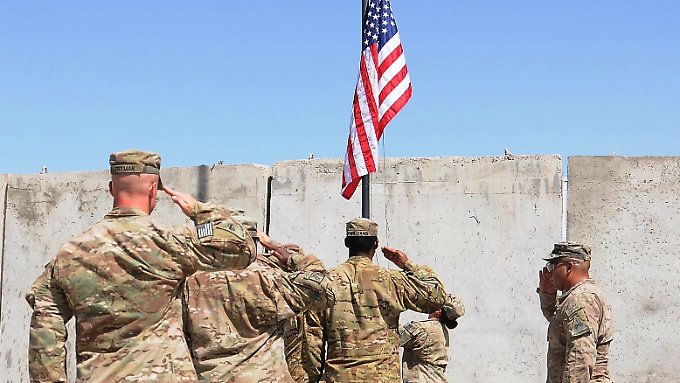What has changed in Afghanistan with the intervention of the United States

The intervention of the analyst Giuseppe Gagliano
It is really difficult to deny the resounding failure of the American intervention in Afghanistan aimed at countering the Taliban presence and stabilizing Afghanistan. Just on October 15, the governor of the southern province of Helmand, Yasin Khan, underlined the large and widespread presence of militias linked to both al Qaeda and Pakistani terrorist organizations such as Jaish-e-Mohammed and Lashkar-e-Taib who they give logistical and military support to the Taliban in daily clashes with government forces.
All this demonstrates not only how the situation is now out of control in the Helmand province, but also demonstrates that the Taliban militiamen have carried out a wide offensive against the capital, that is the city of Lashkargah, despite the fact that there it was an air intervention by the American side.
A similar situation occurred in the northern province of Badakhshan – which is one of the most important provinces in the north – where the provincial governor Zakaria Sawda stressed the seriousness of the partnership between the Taliban, Daesh and the presence of 400 foreign fighters whose terrorist action it is mainly concentrated in the Jurm and Wardooj districts of the Afghan province of Badakhshan with the aim of entering Tajikistan and China.
From a geographical point of view, Badakhshan borders on Pakistan, China and Tajikistan and therefore constitutes a crucial hub for accessing the Far East.
Regardless of the agreements put in place by the current administration, both the stability of Afghanistan and above all the fight against terrorism were not even distant objectives achieved.
The Afghan war, it should be remembered, lasted eighteen years and reached in terms of costs the considerable figure of 2 trillion dollars according to the report of the Watson Institute of Brown University , costs that are nullified.
Secondly, both the preventive war as a whole and the counter-insurgency war – specifically set up by the United States and in particular by the CIA – have so far proved their operational ineffectiveness.
On the other hand, the Taliban ironically affirm that "the Americans have the clock but we have the time", alluding from a military point of view to the fact that terrorist actions together with the use of guerrillas – when they have broad social support – are capable of wearing down any adversary over time, as happened both with the Algerian war and with the Maoist revolutionary war.
David Galula's extensive and documented analyzes published by the Rand Corporation in the 1960s and widely used to organize the counter-insurgency by both the CIA and special forces in Afghanistan have been of little use as demonstrated by the failure of Obama's mission in 2010 in Petraeus when he was appointed ISAF commander. One of the most frequent errors in the context of geopolitics consists in waging war on a people without knowing the value that this gives to human life or without knowing the radical hatred they feel towards the invader, their determination and their pride. Indeed, it is necessary to be able to interpret the specificity of a people.
On the contrary, starting from the assumption that the only valid and viable concept is that of promoting the values of Western culture is a very serious mistake. As Pedro Banos – a reserve colonel of the Spanish army and former intelligence officer of the Eurocorps in Strasbourg – aptly and acutely points out in his essay “This is how the world is controlled. The secret mechanisms of global power (Bur Rizzoli, 2020) in Afghanistan there are a huge variety of ethnic groups. Suffice it to say that among the Pashtuns alone there are 60 different tribes and among these 400 other sub-tribes have arisen. Their political organization responds only to the family nucleus or the clan and is characterized by a very strong spirit of independence. They also have unwritten codes that are profoundly different from those of the West which provide for the duty of hospitality, which provide for the fugitive asylum and hospitality but also provide for revenge in the face of any insult, theft and offense to personal reputation or to family. Well, when the Americans and their allies bombed the Pashtun settlements they acted in accordance with their codes: retaliate against the perpetrators of this act until the revenge was consummated.
As Churchill recalled in 1897, “Pashtun tribes are always engaged in private and public wars. Each family cultivates its own revenge and each clan its own feud. Nothing is ever forgotten, and very few debts remain unpaid. "
This is a machine translation from Italian language of a post published on Start Magazine at the URL https://www.startmag.it/mondo/cosa-e-cambiato-in-afghanistan-con-lintervento-degli-stati-uniti/ on Mon, 19 Oct 2020 04:20:18 +0000.
